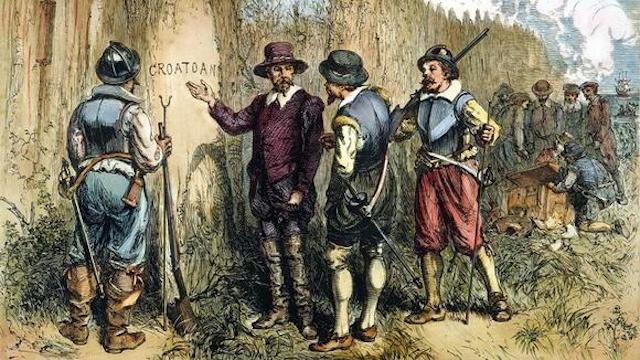 The story of the Roanoke Colony is one of the most enduring mysteries in American history. In the late 16th century, a group of English settlers established a colony on Roanoke Island, located off the coast of present-day North Carolina. However, when a supply ship returned to the colony in 1590, all its inhabitants had vanished without a trace. This puzzling event has captivated historians and researchers for centuries, with various theories and speculations attempting to unravel the fate of the lost Roanoke Colony.
The story of the Roanoke Colony is one of the most enduring mysteries in American history. In the late 16th century, a group of English settlers established a colony on Roanoke Island, located off the coast of present-day North Carolina. However, when a supply ship returned to the colony in 1590, all its inhabitants had vanished without a trace. This puzzling event has captivated historians and researchers for centuries, with various theories and speculations attempting to unravel the fate of the lost Roanoke Colony.
The Arrival of the English: In 1584, Sir Walter Raleigh received a charter from Queen Elizabeth I to explore and colonize parts of North America. Raleigh sponsored several voyages to establish English settlements in the New World. In 1587, John White led a group of colonists to Roanoke Island. The settlers faced numerous challenges, including strained relations with local Native American tribes and scarce resources.
The Vanishing Act: As the situation in Roanoke deteriorated, John White decided to return to England in 1587 to seek additional supplies and reinforcements. Due to the Anglo-Spanish War, he was unable to return until 1590. However, upon his arrival, he found the settlement deserted. The only clue left behind was the word “Croatoan” carved into a post and “Cro” on a tree.
~ Theories and Speculations ~
1. Native American Assimilation: One theory suggests that the colonists assimilated into local Native American tribes, particularly the Croatoan tribe mentioned in the carvings. Some evidence supports this idea, including reports of English-speaking natives and physical features resembling Europeans among certain tribes. However, conclusive proof remains elusive.
2. Massacre or Abduction: Another hypothesis proposes that the colonists fell victim to a violent encounter with Native Americans or other European powers. Evidence of a struggle or the sudden disappearance of artifacts could support this theory, but no such evidence has been found.
3. Disease and Starvation: The difficult conditions faced by the Roanoke settlers, including limited supplies and conflicts with natives, may have led to widespread illness and starvation. It is possible that the survivors dispersed in search of help or perished without leaving behind any trace.
4. Integration with Neighboring Colonies: Some speculate that the colonists sought refuge with other English colonies in the region, such as Jamestown, which was established several years later. However, there is little concrete evidence to support this hypothesis.
The mystery of the Roanoke Colony’s disappearance continues to intrigue historians and researchers. Despite extensive investigations, the ultimate fate of the colonists remains unknown. The story of the lost Roanoke Colony serves as a reminder of the challenges faced by early English settlers in America and the enduring mysteries that history occasionally presents.
~ Sources ~
1. “Roanoke Colony.” Encyclopedia Britannica.
2. Kupperman, Karen Ordahl. “Roanoke: The Abandoned Colony.” National Geographic Society, 2007.
3. Miller, Lee. “Roanoke: Solving the Mystery of the Lost Colony.” Penguin Books, 2001.
4. Quinn, David Beers. “The Lost Colonists: Their Fortune and Probable Fate.” The North Carolina Historical Review, Vol. 43, No. 2, April 1966, pp. 101-125.
Written by Embungsery for Personal Liberty – June 7, 2023
